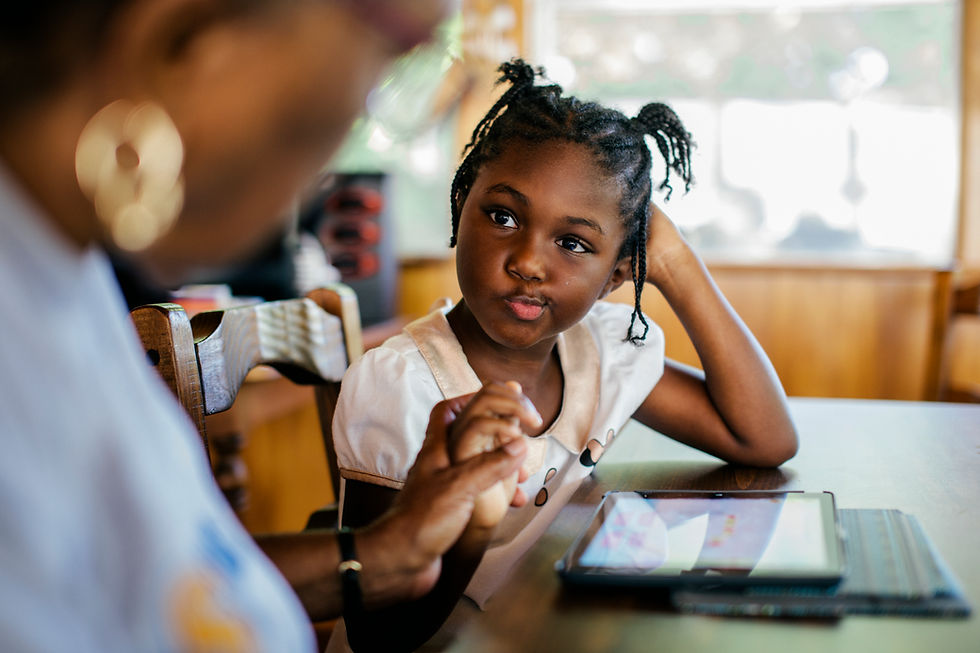Four Tips for Picking the Perfect Musical Instrument
- Megan Woeppel
- Jun 17, 2021
- 3 min read

Picking the perfect instrument for yourself (or your child*) can feel daunting if you don't know where to start. There are so many possibilities! One of my favorite things about being a music teacher is helping people pick which instrument to play before beginning music lessons. After helping hundreds of adults and kids pick instruments over the years, I've combined some of my best tips into a few easy steps:
1. Exploring your Options and Preferences
What kind of music do you like? Take a look at your top played artists, tracks, and genres. What instruments do you hear? Ideally, you're looking to learn an instrument where you'll enjoy the kinds of music it plays.
What kind of group opportunities do you have? Are you hoping to be a weekend garage band warrior? Are there local community bands or orchestras you might want to join? Are you hoping to join the family mariachi group? If you're helping your child choose an instrument, will they have the opportunity to join the school band or orchestra? Take note of the opportunities you might have with the instruments you're interested in. Check out the Instrument Wall tool on my Getting Started page to learn more about instruments offered in school band and orchestra programs. You'll be able to click on each instrument to hear a sample and learn more about what it's like to play that instrument.
What kinds of sounds do you like? Don't overlook the kinds of sounds each instrument produces. If you really hate the sound of the violin, you're not going to have much success trying to play it. Take the Instrument Timbre Survey to learn more about your personal preferences.
What does your personality lend itself to? After working with thousands of musicians over the years in all kinds of settings, it's obvious that certain personality types lend themselves to certain instruments. Take the Instrument Tendency Survey on my Getting Started page to see how your personality might lend itself.
2. Try the Instruments
If possible, try each instrument you're interested in. Learn how to hold it and make a sound. Some music stores will help you try the instruments if they aren't too busy. I am happy to spend our first couple of lessons helping you try instruments and discover what instrument gets you excited. Some instruments are more difficult to get started on than others - it all just depends on the individual's physical makeup and inclinations. For example, depending on your lip shape, some people have a very difficult time producing a sound on a flute. This doesn't mean some people can't play the flute, but it does mean you'll have to be more dedicated to overcoming challenges.
Most instruments feel awkward at first because it's new - that doesn't last long! Many instruments require us to do things with our muscles that we would never have cause to do. Just like it can be awkward to learn how to throw a baseball at first, we have to learn to use our muscles in new ways and it takes a lot of practice and repetition to get used to the feeling.
3. Look to the Future
Often your first instrument is a jumping-off point. What family of instruments could you move to after getting some basic skills down on your first instrument? For example, if you choose to play clarinet, it's easy to add saxophone, bass clarinet, and most other woodwinds once you have a basic handle on the clarinet. The piano is a universal instrument in that ANY instrument you try to add after learning basic piano skills will be easier.
4. The most important question.
What gets you excited? Regardless of ALL other factors, in the end, I have observed that music students are most successful on the instrument that gets them most excited. Music is ultimately a creative endeavor and musicians must choose the instrument that most connects to that inner fire.
With these four steps, it should become pretty clear what instrument you (or your child*) will most enjoy learning. If you'd like more guidance through this process, contact me and book a consultation today!

*A quick note on young beginners (under 9 or 10) - most instruments are too large for young children to be able to hold and play. I highly recommend young students start with piano or ukulele, as both of these instruments are easy for small hands to handle, and both instruments provide a good base for moving to other instruments as they grow.






Comments